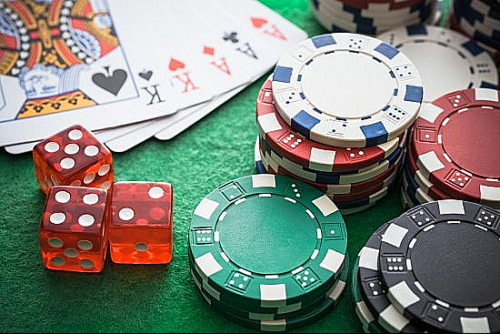Anthony Wilson, 59, feels compelled to hit the casino every single weekend. As a postal worker with 35 years under his belt, Anthony makes a decent salary and feels he can afford to splurge even though he guesstimates a gambling loss of at least $30,000 to $35,000 in any given year. Most of the time, he winds up losing but despite the odds, nothing stops the Maryland resident from hitting the tables and slots. “I enjoy gambling, it gives me a real rush, and I don’t think there is anything wrong with doing what makes me feel good,” admits Anthony.
Does Anthony have a gambling addiction?
Gambling and gambling-related problems are common among all racial and ethnic groups in the United States. Approximately 8 million Americans are addicted to gambling. There is, however, new evidence that African Americans are more likely to experience gambling-related problems than whites. Black men are also five times more likely to become problem gamblers than white men according to the International Center for Responsible Gaming.
Since every gamble requires someone to lose, it is more than likely that at least some of those who lost would attempt another gamble to recover their loss; this can turn into a vicious vice.
Whether it’s gambling at a casino, using an app, visiting a website, playing the lottery, or the illegal numbers, gambling addiction is sometimes referred to as a “hidden illness” because there are no obvious physical signs or symptoms. Problem gamblers also typically deny or minimize the problem—even to themselves.
Do you have a gambling addiction?
Feel the need to keep your gambling a secret. Do you feel the need to gamble in secret or lie about how much you gamble, feeling others won’t understand? Have you ever lied to yourself to rationalize your addition?
Has the gambling spiraled out of control? Do you find yourself struggling with both the time and money you’re spending? Do you gamble until you’ve spent your last dollar or keep upping your bets trying to win lost monies back?
Do you gamble with money you can’t afford to lose? Have you maxed out credit cards, use monies set aside to pay bills, or dipped into your kid’s college funds to gamble? Have you borrowed money to feed your addiction?
Do you go to extremes to get money? Have you turned to some form of criminal activity like theft or forgery to support your gambling habit?
Does gambling come before important events? Have you missed a few days from work, skipped your grandson’s basketball game, or even backed out of important family obligations to hit the slots?
Have you neglected yourself? Does your gambling habit make you lose sleep? Have you neglected your self-care?
Have you tried stopping and can’t? Do you find gambling difficult to stop or even control? Have you tried many times to cut back or even stop gambling altogether, and succeeded for a little while, but then fell off the wagon?
One thing’s for sure, there’s a dark side to gambling. The addiction can lead to financial ruin, legal problems, family and relationship issues, job loss, and an increased risk of suicide. If you believe you’re addicted to gambling, YOU CAN GET HELP! Taking early action is the key to salvaging your job, relationships, and bank account.
Talk to your doctor or mental health professional about your treatment options. Talking to a financial counselor can also help you sort out any difficulties with money as a result of your gambling, and help you better understand its potential long-term financial impact.
Need help?
Gamblers Anonymous is a judgment-free 12-step recovery program patterned after Alcoholics Anonymous. A key part of the program is finding a sponsor, a former gambler who has experience remaining free from addiction who can provide you invaluable guidance and support. gamblersanonymous.org
The National Council on Problem Gambling operates the National Problem Gambling Helpline Network (1-800-522-4700). The network is a single national access point to local resources that provide information and referrals for all 50 states, Canada, and the U.S. Virgin Islands. Help is available 24/7 and is 100% confidential.
Gam-Anon is an anonymous fellowship that offers self-help recovery for anyone whose life has been affected by someone with a gambling problem. In Gam-Anon, family and friends learn effective ways of coping whether or not the gambler seeks help or even recognizes the existence of a gambling problem. gam-anon.org











